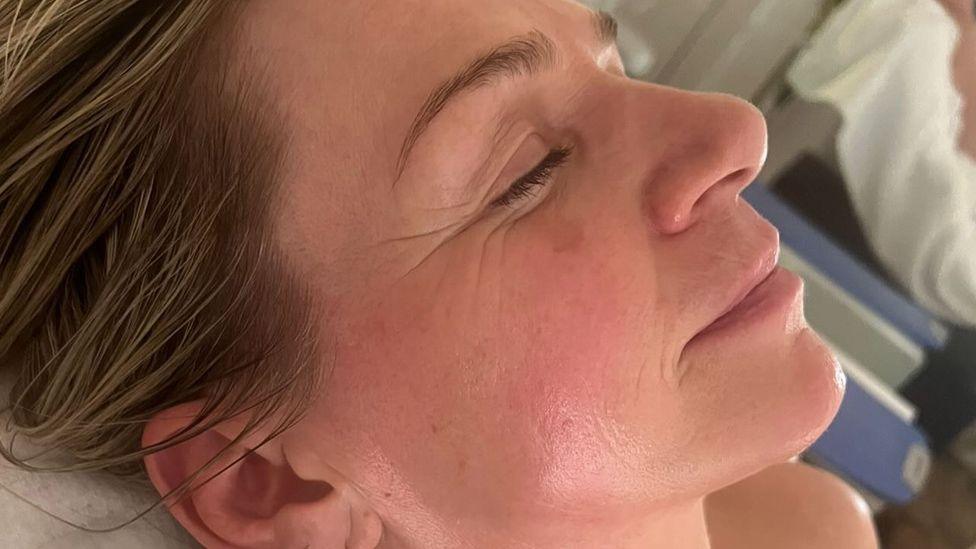Zoe Ball left with 'awful headaches' by jaw condition

- Published
Zoe Ball has revealed she has a jaw condition that gives her "awful headaches" when she wakes up.
The broadcaster, who has hosted BBC Radio 2's breakfast show since 2019, said she has TMJ (disorder) - which stands for temporomandibular joint.
Writing on Instagram,, external she said: "I have TMJ and wake most days with awful headaches from tension & jaw clenching."
Earlier this month, she announced she was stepping down from her radio show after six years, with Scott Mills set to take over.
'So grateful'
Symptoms of the condition, which is actually known in the medical profession as Temporomandibular disorder (TMD), include pain around the jaw, ear and temple, a headache around the temples and difficulty opening one's mouth fully, according to the NHS website., external
Ball shared a photo of her face before and after receiving treatment, saying she was "so grateful" to the clinic which had helped her.
Several messages in the comments below showed people saying they could empathise with her pain.
The 54-year-old revealed on her show earlier this month she felt it was time for her to "step away from the very early mornings and focus on family", having previously taken a break over the summer following the death of her mother.
She took over presenting duties from Chris Evans in 2019 and will host her show for the final time on 20 December.
Zoe Ball: 'It's time to step away from the early alarm call'
Mills, who currently hosts Radio 2's weekday afternoon programme, will pick up the reins from early January.
Ball became the first female host of the Radio 1 breakfast show in 1998, after having co-presented the Saturday morning children's TV programme Live & Kicking alongside Jamie Theakston.
Ball was listed as the BBC's highest-paid on-air female presenter for the 2023/24 period - with a salary between £950,000 and £954,999 - and second overall behind outgoing Match of the Day host Gary Lineker.
However, many more stars are not named on the salaries list because the BBC does not have to disclose the earnings of stars who are paid through production companies.
That includes BBC Studios, the corporation's own commercial arm, which is not underpinned by the licence fee, and does not have to disclose salaries, allowing it to operate on a level playing field in the sector.
Related topics
- Published19 November 2024